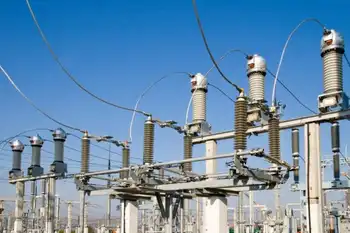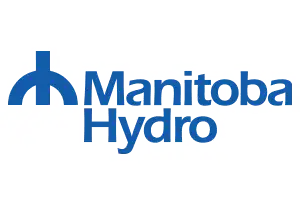10 ideas for energy efficiency in 2010
By The Energy Collective
Substation Relay Protection Training
Our customized live online or in‑person group training can be delivered to your staff at your location.

- Live Online
- 12 hours Instructor-led
- Group Training Available
Last year was a blockbuster for the cause of building awareness of the energy retrofit opportunity/challenge (about138 million U.S./Canada residential units needing some degree of energy upgrade). But financing retrofits, and taking the complexity out of determining what to do, remains a massive obstacle to scaling the fix of our housing stock on a national level. The Cash for Caulkers (HomeStar) and REEP (Retrofit for Energy and Environmental Performance) programs have the potential to combine the best ideas of simplification (but not overly so) with appropriate levels of financial incentive — and produce a ton of good old American jobs in the process.
2 - Unify the BPI and RESNET for a Comprehensive Home Energy Audit Standard
While there are legitimate concerns about watering down the unique qualities of the BPI and RESNET approaches, the need for a simple, ubiquitous standard has never been more critical for a few reasons. First, the proliferation of lesser trained "energy auditors" bearing a growing number of private "certifications" endangers the overall profession. A single best in class approach and standard is the best solution to this. Second, there is already massive confusion amongst homeowners about what constitutes an energy audit. The cause of the comprehensive, whole house approach is best served by unifying around the two leading standards.
3 - Evolve Google PowerMeter to be More than a Widget
Google's PowerMeter has generated considerable excitement in the home energy monitoring space, and has done a lot to promote Step 1 — Awareness — what we've always believed is the entry point to tackling your home energy use. It's a very cool little widget, accessible on iGoogle or a mobile device, and Google's been quietly adding features since its debut. But it doesn't take long for even a rookie energy monitoring household to want more information than is possible in a widget, and more ways to parse the data. It seems only logical that Google PowerMeter should grow into a Google Analytics for Energy, with all the power and elegant data visualization that analytics offers.
4 - Ignite a PACE Wildfire (Property Assessed Clean Energy)
Thanks to prodding by DOE, states are moving quickly to enable the property tax to be used as a financing mechanism for residential retrofits. As we've trumpeted before, this is the game changer — a means of funding retrofits that isn't on the mortgage, ties the project to the house (not the owner) and is discretionary home by home. For this to be ubiquitous, however, backend financing mechanisms that can be easily accessed by even small towns and cities need to be in place. Wall Street redeem thyself.
5 - Industrial Designers and Product Usability Experts: Energy Efficiency Needs You
Energy efficiency products, collectively, are in dire need of better design and improved usability. Programmable thermostats, for example, are unbelievably great products for saving energy via temperature setbacks during off or unoccupied hours. But the research shows that they aren't living up to their potential. In my opinion, this is the old VCR problem — few people could program the damn things. Except in energy efficiency, the consequences are much more real: extra expenses that homeowners don't need, and wasted energy use that our planet doesn't need. The kinds of brains capable of producing elegant, highly usable products like iPhones, iPhone apps, and Wii's are desperately needed in energy efficiency. Programmable thermostats need to be no-brainers. Energy monitoring devices need to be easy to install, easy to connect to the internet, and have great user interfaces. I can't think of a category of product in energy efficiency that wouldn't be dramatically improved by even a modest design upgrade.
6 - Pass the US Climate Change Bill
The Senate needs to figure out how to get the pending climate change legislation passed, reconciled with Waxman-Markey and made into law. Period.
7 - Homeowners Take the Lead — A Grassroots House-by-House Groundswell
There are many reasons to improve the energy efficiency of your house. Comfort, cost savings, and doing your part to "be green" are often cited reasons. But there's a larger purpose here. Amidst all the innovative work being done at the national policy level, by far the most important reason you can take action to improve your home's efficiency is that in so doing, you demonstrate leadership — you set an example for family, friends, neighbors, your town and so on. We see that people are hesitant to make changes for many reasons; we need to get past our old ways of thinking and be community leaders — just by taking simple, concrete actions.
8 - Set Minimum Performance Standards for CFL and LED Bulbs
Five years ago, most CFL bulbs were expensive oddities that performed poorly and were poorly constructed. Today, you can buy good CFL bulbs — but the cheap ones are still on the market and more ubiquitous than ever. And they're still cheap, and still perform poorly. They started by earning a poor reputation, yet the market has still not corrected — how is a consumer to know that the $2.95 house-brand bulb is terrible, but the $4.95 one will actually do everything it says on the box? Manufacturers and marketers of the next big lighting technology, LEDs, should take note and do all they can to not repeat CFL makers' mistakes when bringing their products to market. Truth is, CFLs and LEDs both have strengths and some weaknesses, but are overall incredible products, using from 4x to 10x less electricity to light your house. We just need a clear standard for quality, performance, and suitability to task and a means of clearly identifying the duds and getting the good ones recognized for what they are — heck, they rate wines, why not lightbulbs!
9 - Build a Home Profile Database that Works
There are several different tools that let you plug in data about your house and get recommendations about things you can change. The bad ones take a long time to complete, ask questions most home owners don't know the answers to, and then come up with lame recommendations. Some are so lightweight that they cannot possibly deliver an accurate view of your house. We need a single, central database of homes that can accumulate facts about the house over time — some from the home owner, some from utility companies, some based on local weather conditions, some from existing data sources, some from qualified auditors and other pros who can provide accurate details. As data becomes more detailed, an analysis of the data could provide increasingly targeted recommendations or scores. How about it Google?
10 - Unify on a Residential Energy "MPG for Houses" Label
Numerous studies show that when homeowners are aware of their energy use, they change. But how should your house perform? How much electricity is "normal"? How much heat does your house use compared to neighbors or similar houses? Is it just because your house is not insulated or has large air sealing gaps letting in cold and hot air? Maybe your oil burner needs a tune-up. How do we know? What's the standard? Without clear targets, and simple, understandable measures, we're all just trying to "save." We really need a single label that's acceptable to banks, carbon traders, prospective homebuyers, and homeowners.











